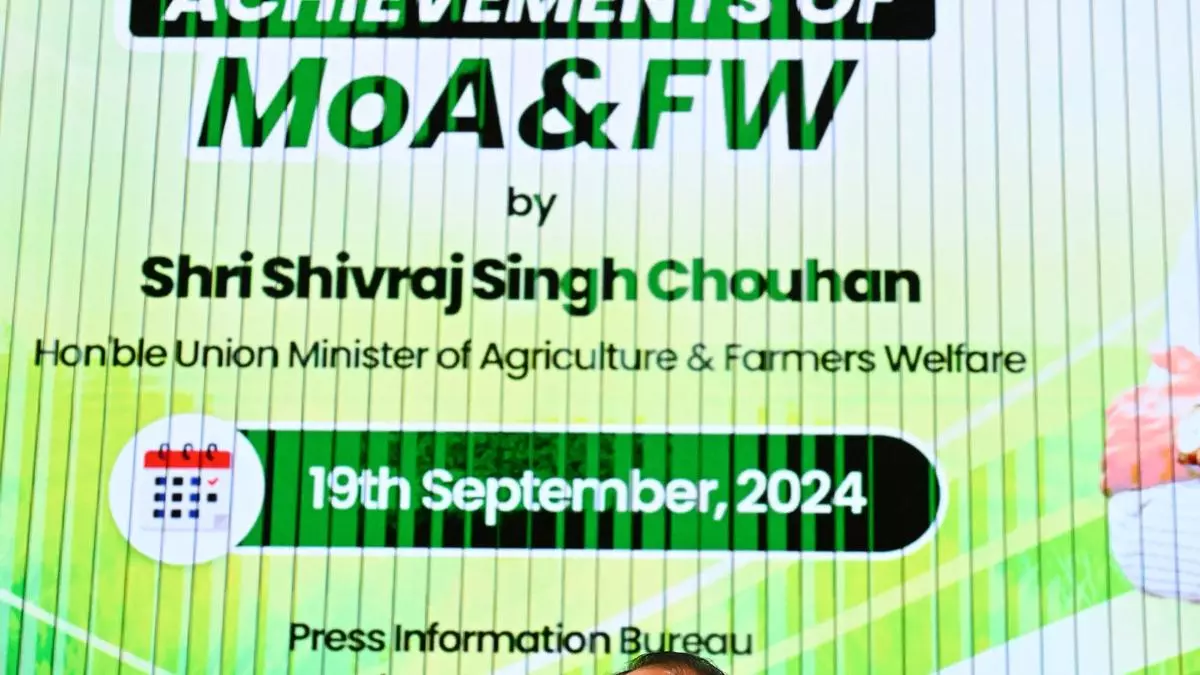No more private sector involvement in MSP-based procurement in revamped PM-Aasha
In a major decision, the Agriculture Ministry has removed the scope of private sector involvement in the procurement of crops at minimum support prices (MSPs) by omitting a sub-scheme named “Private Procurement and Stockist Scheme” (PPPS) under the revamped PM-Aasha (Annadata Aay Sanrakshan Abhiyan). States are also allowed to implement the “Bhavantar” model in vegetables, Union Agriculture Minister Shivraj Singh Chouhan announced on Thursday.
Briefing the media on the 100 days achievements of the Modi government, Chouhan said under the revamped scheme on oilseeds and pulses procurement — PM-Aasha, approved by the Cabinet on September 18 — States can implement the Price Deficiency Payment Scheme (PDPS) for vegetables as well, apart from oilseeds.
The PPPS component of the PM-Aasha has been shelved as no State showed interest to implement it, the Minister said.
Under the PPPS, launched after the rollout of PM-Aasha in 2018, the Centre allowed private sector participation in the procurement of oilseeds at eight pilot locations. However, the initiative did not take off due to insufficient government support and lack of interest from the States, sources said. “No State was ready for PPPS since the other two options (PDPS and PSS) were better. Moreover, there was no mechanism in PPPS to handle disposal of crops purchased at MSP,” an official source said.
Calculation norms
The guidelines for PPPS stated that the Centre would reimburse up to 15 per cent of the MSP to the private agency selected by the State, including a 1 per cent administrative cost.
Chouhan, who had started Bhavantar scheme for soyabean crops in Madhya Pradesh before the Centre announced PDPS (a similar scheme to Bhavantar), said on Thursday that up to 15 per cent of the difference between market rate and the government-set price will be paid to farmers for vegetables, same as in oilseeds.
Asked how will the government calculate difference in vegetable crops since there is no MSP, the minister said there is a market intervention price declared by the State for key essential vegetables. Some States start purchasing at government-set rates if the vegetable prices in mandis go below those levels.
“The 15 per cent cap has been fixed to ensure that there is no artificial depressed prices in the market,” he added.
In Madhya Pradesh, traders paid farmers less than market rates after discounting the Bhavantar amount saying those payment in anyway would be received by farmers, as a result many soyabean farmers had not got the benefit of MSP.
In order to encourage the States to come forward for implementation of PDPS, the coverage has been enhanced from existing 25 per cent to 40 per cent of State production of oilseeds and also raised the duration of implementation from 3 months to 4 months, the Agriculture Ministry said.
‘Awaiting report’
Chouhan also pointed out that the committee on Minimum Support Price (MSP) for crops, led by former agriculture secretary Sanjay Agarwal, is yet to submit its report after having over 24 meetings across the country. He hoped the panel would submit a report soon. The committee was established in July 2022 following the withdrawal of the three controversial farm laws.
The minister said that “Adhunik Krishi Choupal” will be the name recently coined for the radio programme he planned to undertake every month, on the pattern of “Mann Ki Baat”. The new programme will also feature scientists sharing agricultural innovations with farmers and likely to begin on Doordarshan and All India Radio from next month.
Besides, he will hold weekly interactions with farmers and leaders of farmer organisations at the agriculture ministry, though entry of the visitors will be allowed through prior appointments.
Though he parried question related to genetically modified (GM) cotton, he asserted that the government is pursuing a three-pronged strategy to boost farm output — ensuring timely supply of affordable inputs, enhancing farmers’ income and ensuring reasonable prices for produce.
The government has a big part to play in making laws that help farmers and support long-term farming, said Shailendra Singh Rao, founder of Creduce. “Supplying low-cost fertilisers, loans with low interest rates, and better access to markets need to be done. Investing in agricultural research and development is also important for coming up with new ways to farm and crop types that will last,” he said.
